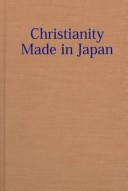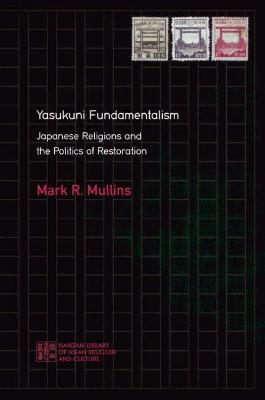Nanzan Library of Asian Religion and Culture
1 primary work • 2 total works
Book 25
For centuries, the accommodation between Japan and Christianity has been an uneasy one. Compared with other Asian countries, the churches in Japan have never counted more than a small number of believers resigned to a pattern of ritual and belief transplanted from the West. There has however been a rise in indigenous movements aimed at a Christianity that is at once made in Japan and faithful to the scriptures and apostolic tradition. This text presents a sympathetic look behind the scenes and into the lives of the leaders and followers of several indigenous movements in Japan. Focusing on the "native" response rather than Western missionary efforts, the book presents a variety of interpretations of the Christian tradition, while raising questions vital to the self-understanding of Christianity as a "world religion".
Although religious fundamentalism is often thought to be confined to monotheistic "religions of the book," this study examines the emergence of a fundamentalism rooted in the Shinto tradition and considers its role in shaping postwar Japanese nationalism and politics. Over the past half-century, the Liberal Democratic Party (LDP) and the National Association of Shrines (NAS) have been engaged in collaborative efforts to "recover" or "restore" what was destroyed by the process of imperialist secularization during the Allied Occupation of Japan.
Since the disaster years of 1995 and 2011, LDP Diet members and prime ministers have increased their support for a political agenda that aims to revive patriotic education, renationalize Yasukuni Shrine, and revise the constitution. The contested nature of this agenda is evident in the critical responses of religious leaders and public intellectuals, and in their efforts to preserve the postwar gains in democratic institutions and prevent the erosion of individual rights. This timely treatment critically engages the contemporary debates surrounding secularization in light of postwar developments in Japanese religions and sheds new light on the role religion continues to play in the public sphere.
Since the disaster years of 1995 and 2011, LDP Diet members and prime ministers have increased their support for a political agenda that aims to revive patriotic education, renationalize Yasukuni Shrine, and revise the constitution. The contested nature of this agenda is evident in the critical responses of religious leaders and public intellectuals, and in their efforts to preserve the postwar gains in democratic institutions and prevent the erosion of individual rights. This timely treatment critically engages the contemporary debates surrounding secularization in light of postwar developments in Japanese religions and sheds new light on the role religion continues to play in the public sphere.

